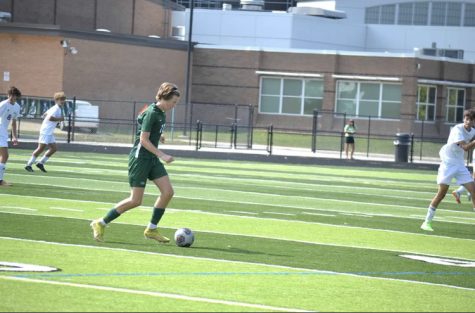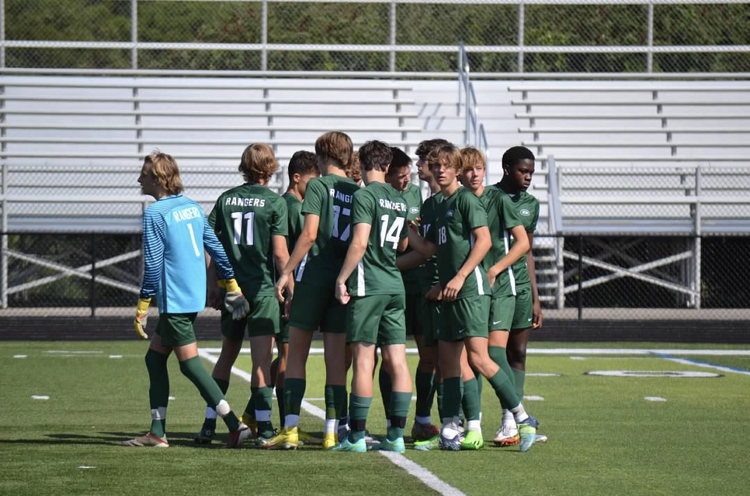The effects of dead week

More stories from Matthew Taylor
The weeks leading up to the season can be tough for an athlete, but it is even more challenging when you have to stop practicing and training with your coaches.
Per the MHSAA ruling, every athlete in the state must stop interaction with his or her coaches for a seven-day period that many refer to as a dead week. This brief break from students’ sports is challenging because it can cause them to become lazy and to fall behind, but it can also allow them to better themselves and continue to grow. The decision between slacking off or putting in the extra work is risky, and many athletes take different approaches to it.
To continue improving his skills and stay in shape, senior baseball player Matthew Holtgreive usually tries to stay active during the week. “I typically go to an individual training facility and meet with my personal coaches who help me with different aspects of my game. For example, I’ll meet with my pitching coach and my hitting coach once or twice during the week,” said Matthew. Matthew takes advantage of the “off-week” and uses it to prepare for the upcoming season not only physically but mentally as well. Keeping the mental game sharp is just as important as the physical aspect for the journey ahead so that athletes can give it their all for the entirety of the season.
Getting into shape is tough for any athlete to do and most dread the physical stress they have to endure; however, a week off can make it even more difficult. For the soccer team, many conditioning practices, led by the coaches, are held over the summer and have become the best way for players on the team to get physically ready for the season. During the dead week, the coaches are not able to continue this training for a week which makes it more challenging for players to get ready for the dreaded two-mile run for tryouts. This prompts players on the team, such as Will Banfield, to find other ways to continue preparing. “Usually, I schedule fun practices or scrimmages with friends or teammates to still be able to get some work in during the week,” said Will. He, similar to Matthew, uses this week not only to continue to train but to also take a break from all of the strenuous work he has put in during the preseason.
Not only does the dead week affect players but it also takes a toll on coaches as well. Paul Kramer is the varsity boy soccer head coach and is the mastermind behind preseason training. His mentality toward the season is that his team may not be the most talented, but they will be the fittest. This would be easily accomplished if it weren’t for a dead week. Although overall team fitness is important, Coach Kramer uses the week as an opportunity to understand the mentality of his players. Paul talked to me about how it affects his team and he said, “Dead week for me doesn’t affect my plan. It actually shows me who takes the baton and leads the group from within that week.” He uses the week to see who continued to train which he finds to be very evident when tryouts roll around. These players who kept practicing are the same ones who become the leaders of the team. These leaders then go on to gain the respect and trust of both players and the coach which can give the team a better opportunity at success down the stretch.
Although dead week may make it tough for athletes to continue to prepare for the season, it can still give them the opportunity to get a break from the stress of the preseason while also allowing them to get their mentality in check for the long haul. This opportunity, while challenging, can help individuals better themselves for the team in order to get ready for the journey ahead.

Matthew Taylor is going into his junior year and first year writing for the FHC Sports Report. Matthew plays soccer, golf, and skis for the school. He...



